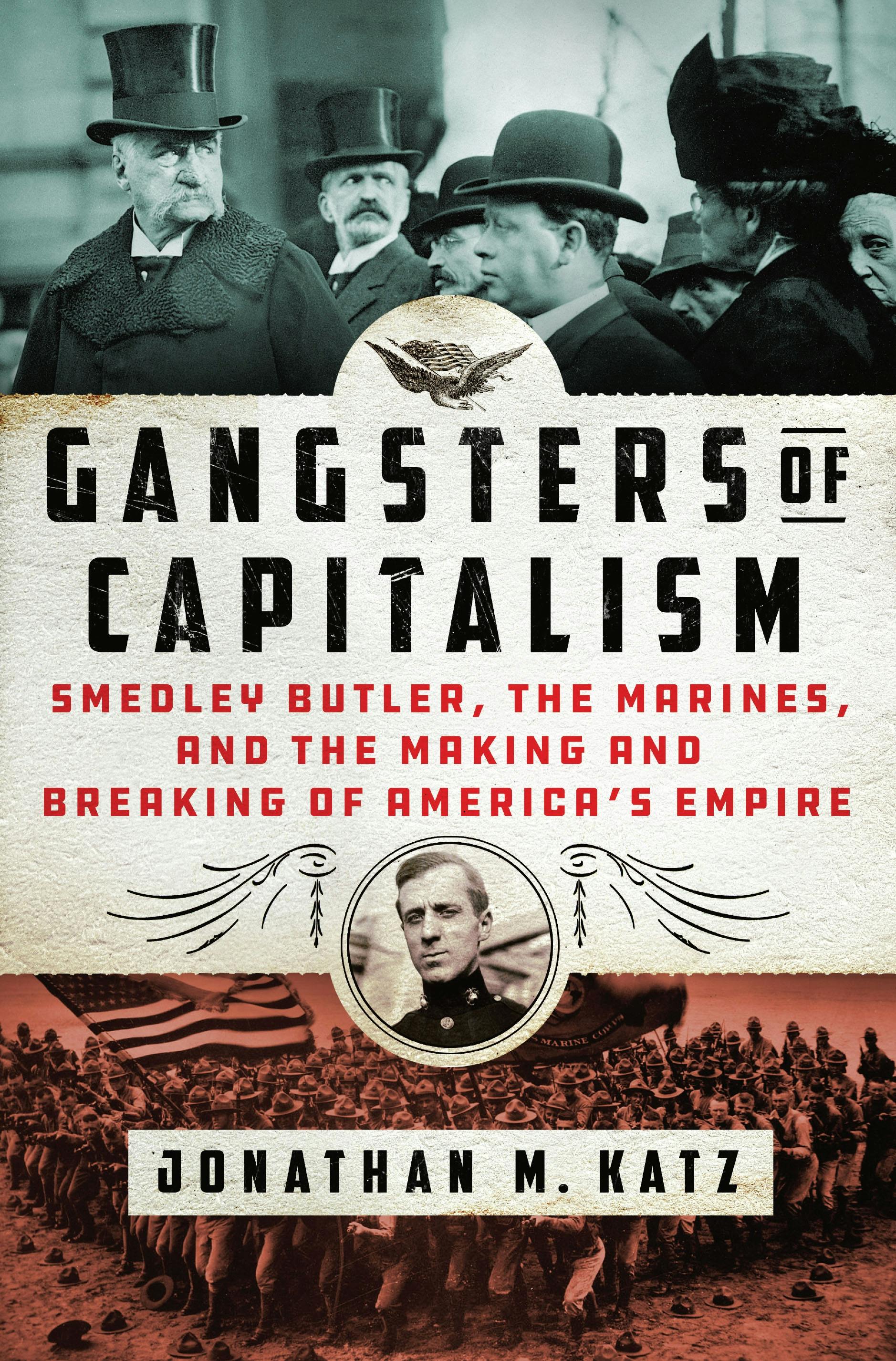There are some figures whose place in the story of the American past is so central that schoolchildren cannot help but know them: George Washington, or Abraham Lincoln, or Rosa Parks. But there is also a group of people who have not passed into national legend, and perhaps whose lives are not considered fit to explain to children. They are most likely to be encountered, if they are encountered at all, in the institutions that often engage the attention of young people between the ages of 18 and 22. Among those, there is probably only a single person who will be discovered almost exclusively by two generally nonoverlapping groups: avid readers of the corpus of Noam Chomsky, and members of the Marine Corps. That man, standing lonely astride the lens-shaped center of a peculiar Venn diagram, has the unlikely name of Smedley Darlington Butler.
The name reflects Butler’s Pennsylvania Quaker heritage—his father, Thomas Butler, was a congressman in the seat once held by his wife’s father, Smedley Darlington. Both were prominent families, but the young Butler would not pursue a career in politics. He was 16 years old when the Spanish-American War broke out. The United States promised it was entering the fight to free the remaining Spanish overseas colonies from tyranny. In spite of the Quaker tradition of pacifism, Butler believed in the mission. “I clenched my fists when I thought of those poor Cuban devils being starved and murdered by the beastly Spanish tyrants,” he wrote later. When he read of the explosion of the USS Maine in the Havana harbor in 1898—which the “yellow journalism” of the era painted as a Spanish attack—he decided to enlist in the Marines. His military career would take him from Cuba to China to Central America, where he became a legend in the Marine Corps, representing martial valor and virtue. Famous in his day, the subject of fiction and film, he retired with two Medals of Honor and a greater number of nicknames—Old Gimlet Eye, the Leatherneck’s Friend, the Fighting Quaker—that testified to his place in the culture.
In the countries he helped occupy, a different memory of Smedley Butler lingers. In Haiti, he was simply known as “The Devil.” In Nicaragua, mothers used to quiet their children with the claim: “Hush! Major Butler will get you.” Butler’s time in the Marines coincided with its transformation from a Navy auxiliary to having its own identity and purpose as a colonial infantry. This might be enough to explain why Butler would make an appearance in the anti-imperialist writings of Noam Chomsky. But it isn’t the reason. In retirement in the 1930s, Butler had a second successful career as a public speaker. He told stories of his military service. And he did so from a remarkably critical—even confessional—point of view.
